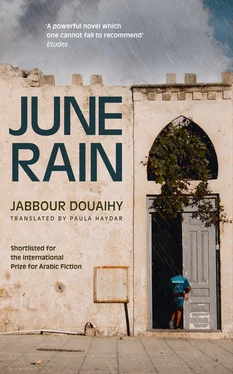On board the plane to New York, Eliyya recorded his thoughts in his notebook: Here I am, travelling above the Atlantic Ocean inside a diamond wrapped in a white-hued infinity, more like a suffocating prison. Next to me is a young woman like the ones I dreamt of in my early adolescence: thin-framed glasses, mysterious, beautiful… He didn’t write that she was a blonde, his type. He ventured to scrutinise the other passengers, one at a time, sitting in their seats, but no one looked familiar. He didn’t try to flirt with the girl, but spread out a good number of papers and magazines in front of him and smiled at her with just enough nonchalance to capture her attention on that long night flight. She asked to look at one of the magazines, and so he introduced himself using an English accent. ‘I’m Eli,’ he said. Her name was Suzanne and the flight was going to take hours. She started talking. Usually he didn’t talk, but this Suzanne seemed to be talking to herself as she looked at him. Just like that, with no fancy introductions, she warmed up to him. There was something about him that put people at ease, especially women. She was living alone in New York, she said, and was much attached to her independence. She didn’t have a husband, or any boyfriends. Eliyya smiled inwardly. Women were always making that claim of satisfaction, of loving to be on their own. She went on to say that the most beautiful moment of her day was when she came home in the evening after a long tiring day at the Welfare Office in one of the poor neighbourhoods where she worked, and flung her window open. She would open the window and look up at the stars as they mingled with the city lights. She lived on the top floor and could watch the planes fly in one after another as they traversed the city sky, flashing their lights to signal their approach into the airport: innumerable little dots. She loved the refreshing night air and sought out those sweet moments, moments of temperance, before the tumultuous wave of life came crashing back down on her the next morning. Her goal in life was to make those peaceful moments last as long as possible.
Eliyya paused. He let the girl from New York go on talking, and for a period of time, for almost an entire hour, Eliyya appeared not to have anything to say. He just listened and smiled enough to assure her he was trustworthy, an impression he knew he gave to people who talked to him. She, in turn, wasn’t expecting any response from him, but after describing herself and her daily routine to him, she remembered that being a good conversationalist required showing interest in the listener, so she asked him if he was familiar with New York. At that point, the knot in his tongue was loosened and he started improvising, as he’d grown accustomed to doing, this time with a new story in which he said he lived in New York and had been born in Egypt. He supposedly had grown up in a Jewish family in Alexandria and had a half-crazy paternal aunt whose real name was Sarah, but they called her by the alias Jamila. His aunt claimed that the commander of the British Army, Colonel Roger Whittaker, who was stationed there during WWII and according to her was a hero in the Battle of Elalamein, was in love with her. Supposedly the British Intelligence asked her to collaborate with them in return for a large sum of money, but she refused. Whenever she had trouble finding anyone to listen to her stories, she would gather the children of the family together and tell them her stories of love and disappointment. Eliyya went on to say he had a younger sister who had fallen in love with a young and handsome Muslim. She had run away with him despite the family’s protests and accusations of betrayal. He was finishing up his story with his usual enthusiasm when he noticed that Suzanne, sitting there beside him, was shutting her eyes little by little and the magazine she was holding was about to slip out of her hands. A little baffled, he watched her a while until she had dozed off completely with her head resting on his shoulder. Eliyya continued his story as if Suzanne was still listening to him. He took advantage of her nap to tell her another story.
‘In a small town far, far away, on the western coast of the Mediterranean Sea, there was a place full of dense fir trees standing like sad women on the slopes of the high mountains; clusters of snow shimmered above them in the spring sun, and the plains were covered with olive trees; a place where the waters splashed and the mountain dipped its feet in the ancient sea…’
Eliyya told the story as if he were reading it from a book, with a monotonous rhythm that most likely helped keep Suzanne asleep.
‘… And there was a man who was forty years old. He’d married a girl he loved and who loved him, and for fifteen years they lived without the blessing of children. Then, on one hot spring night, his wife forced him to sleep with her. But it so happened that the next day the man was killed in a massacre that took place in a church. This was when, rather than coming to an end, all the problems began. Some of the townspeople insisted that in all the confusion the man had been accidentally shot by his own relatives; while friends of his from the enemy’s family said he’d been shot in the back intentionally. On Saturday, the 7th of March of the following year, his widow gave birth to a son. It was at least one week more than nine months later, assuming that the last time his father had slept with his mother before he was killed was the one that led to conception after fifteen years of futile attempts. In those days doctors did not have methods for inducing labour. And his mother had no way of getting to a doctor. So when she realised she was overdue, she sent a friend to get the midwife who lived in the area. The midwife spread his mother’s legs and took a look. The only medicine she could prescribe was to wait. She delivered him the next day, amidst the gunfire and family feuding and never-ending vendettas. He was a big baby, with a big body and a big head. At fourteen he could recite French poems by heart and learned to play the accordion and the clarinet. He knew it all — English, Arabic, French and Latin — though he hadn’t mastered any of it. He knew German philosophy but didn’t know the names of its pioneers. He knew music but couldn’t read musical notation. He was an expert in all the world’s cuisines, but couldn’t make an omelette. He lived an adventurous childhood but no one could be convinced that he was his father’s son, so they guessed other men to be his father, finally settling on the notion that his mother was his only parent. This was something that created a deep hole in his and his mother’s hearts. His mother couldn’t stand to have him near her, so she sent him away. He went to the other side of the world and told everyone he met there fabricated stories of his past, which no one believed. And here he is now, floating on his last flight to New York, carrying his burdensome Biblical name and that past of his, fraught with all its stubborn legends, trying to tell the truth about himself and his family for the first time in his life to a blonde American girl who isn’t listening…’
As soon as Eliyya stopped speaking, Suzanne opened her eyes and said reproachfully, ‘Why did you stop? I was enjoying your story very much… I usually don’t really like stories about fathers and mothers and sons, but it’s been a long time since someone told me a story while I drifted in and out of sleep…’
He paused a little, and then said, ‘It’s not a story…’
‘Doesn’t matter. You tell it the way my father used to tell me and my sister the story of Peter Pan. However much we resisted it would always send us to sleep… Go on. Please,’ she said, laying her head back on Eliyya’s shoulder to assure him she wanted to fall asleep to the sound of his voice again.
Читать дальше












